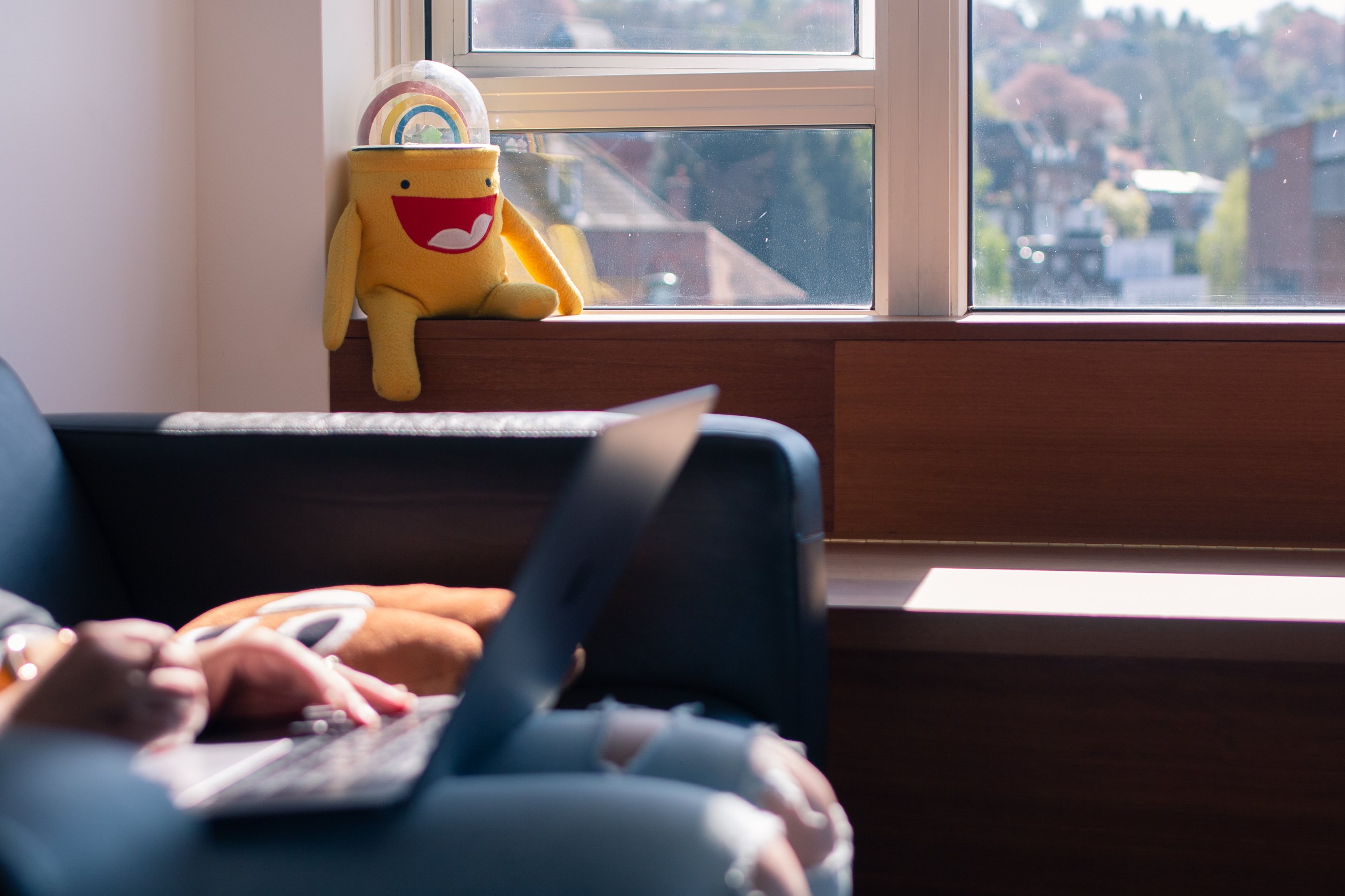How environment impacts on innovation

Sitting at home in my pajamas with a cup of tea on the go is, while delightful, not where I do my best work. Quiet, buttoned-up offices are, similarly, not somewhere that I feel like I'm going to be struck by a wave of inspiration.
Working in isolation is not something that typically inspires innovative thinking and problem solving. This is something that is increasingly challenging, given how many people are able to work pretty much anywhere with a laptop and a half-decent WiFi connection (the latter being admittedly difficult at times).
With that in mind, it's more important than ever for product development teams to communicate properly and, ideally, for that communication to happen face-to-face. Being able to bounce ideas off people in real-time is far more powerful and impactful than often-stilted video calls or firing emails back and forth. Much has been made of the 'remote workforce', but offices exist for a reason and they're here to stay.
There are a plethora of benefits to having everyone under one roof.
First and foremost amongst those benefits is collaboration. Brilliant products are rarely developed by one person acting alone, they are a team effort. Got a mind-blowing idea? You should verify that idea with the wider team to make sure it's not just you being blown away. Stuck on a tricky problem? Talking it through with someone who is also invested in what you're working on will make a big difference. With everyone in one place, those conversations are possible at any time. Sometimes they will be planned sessions. Sometimes they will be serendipitous catch ups over the espresso machine. Whatever form they take, they will help to clarify thoughts and evolve ideas.
Secondly, one of the positives of having everyone in one place is being able to construct multi-disciplinary teams. Your front end specialists should be working closely with your user experience designers. When your back end developers are perhaps a little unclear on an aspect of functionality, they can work with the people who put the idea together in the first place. This builds understanding and helps ensure the project vision is truly shared. It can be hard to convey complex requirements if you're not in the same room, potentially leading to misunderstandings and frustration.
Finally, it makes it easier to pull on shared experience. If you're part of team working on something and you remember that "Hey! Carmen was working on something similar not so long ago!" you can sit down with Carmen quickly to get that easy insight and perspective. With remote teams, this knowledge sharing is nowhere near as slick and painless a process.
For all those reasons, having everyone in one place is great; but it's not the only part of the puzzle. People need to feel empowered to have those conversations, to be able to work with different people, to grab Carmen for a quick chat (poor Carmen) and that can be achieved through environment. Here at Kyan, we're big advocates of light, airy and open spaces that allow people to sidle over to a colleague or go and work on a comfy sofa. Breakout areas, slightly more private booths and a presentation space mean you can adapt where you work to what you're working on.
This collaborative approach also means building better relationships with your co-workers. Of course everyone is different but a recent study has shown that 80% of people say being friends with colleagues makes them more productive. Nearly 70% said that social events in the workplace have an important impact on mental health and wellbeing. These are positives that aid the process of innovation and thinking about things differently.
Leisure time is another area that is often overlooked! Staring a screen for 8 solid hours and then going home is good for exactly no one. Allowing people to 'take a break' is often a huge catalyst for problem solving. How often have you been desperately trying to think of that actor that played thingy in that film you like? Then, an hour after you've given up trying to remember and moved onto something else, it comes to you! The concept of giving people things to take their mind off work is the same and it's massively beneficial for thinking creatively. I'm not just talking about having an arcade machine and a ping pong table in the office. I mean, we do have those things, but they're not what forms the culture of innovation; they're symptomatic of it.
We love to show off our office at every opportunity. It's a great space to bring people into and hold discovery sessions and workshops. The open nature of where we work and the tools we have at our disposal allow us to work with clients to get the most out the products that we work on. Why not come in for a discovery session and see it in action!